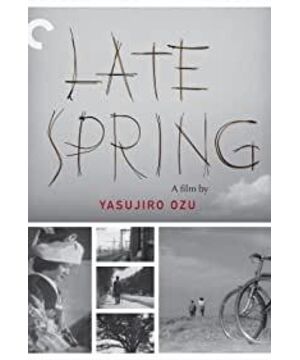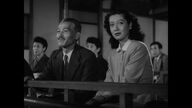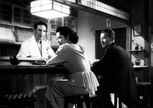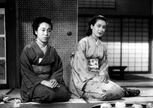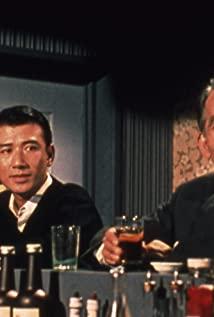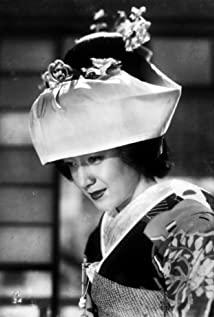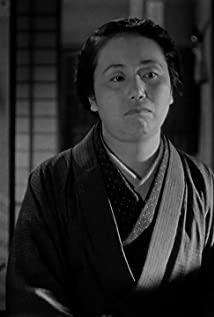Ozu has made a lot of movies about marrying a daughter or elements of a married woman, and the reason for worrying about marriage is either shyness, reluctance to part with family, or to take care of relatives. Most of the daughters in these films are in the situation of being unilaterally urged to marry and introduced to the object, and in this "Late Spring", the daughter has a layer of active self-awareness, that is, the attachment to her father. Such two-way father-daughter emotions and behaviors make this film unique and intriguing in Ozu's films.
The 27-year-old Noriko has reached the age when she should start a family, but she has no plans to marry because of her excessive attachment to her father. At the beginning of the film, Noriko met a friend of her father's outside. During the conversation, she learned that the other party was planning to remarry, and she ridiculed the other party as "immoral". So far, Noriko's disgust and rejection of remarriage values have been explained to the audience. This traditional moral view has prepared enough for the loss, jealousy and even resentment that Noriko will show when she looks at her father's fictional remarriage object in the theater. . Noriko and her father's assistant Hattori are very close, and they will ride a bicycle together to play and chat by the sea. The father and aunt were quite worried about Noriko's marriage. They thought that Noriko might be interested in Hattori, which was obviously a good thing. So during the meal, her father asked about Noriko's relationship with Hattori, but Noriko laughed and said that Hattori was married. Perhaps because of her father's awareness, Noriko re-examined her close relationship with Hattori. Later, Hattori invited her to the theater to enjoy the violin concert. After the opening, Noriko stayed outside the theater and hesitated. Finally, she returned home alone, leaving Hattori to sit alone in the theater. The seat is very eye-catching. Obviously there is a deep affection between them, but this is immoral after all, and Noriko took the lead in making a choice. In the face of her father's urging marriage, Noriko revealed her attachment to her father to her father, and worried that her father, who would burn even the meat, could not cope with the trivial daily life alone. Facing the stubborn Noriko, her father and her aunt made up a fictional object of her father's remarriage. Aunt brought Noriko to meet the single woman who lost her husband, and Noriko was shocked to learn that her father was planning to remarry. When she and her father were watching a play at the theater, she found that this woman was also watching a play. Noriko kept secretly looking at this woman, and her heart was complicated. After watching the show, Noriko left her father alone. She was angry because she was against remarriage and because of her strong attachment and possessiveness to her father. Noriko often stays with a best friend, who is a divorced mother. She also often persuaded Noriko to get married, and Noriko retorted her that her divorce from her husband was the consequence of marriage. Aunt introduced Noriko to a man who looked like Hollywood star Gary Cooper, Noriko's favorite actor. In the end, Noriko reluctantly agreed to the marriage after learning that her father was going to remarry. After Noriko got married, the father, who had been urging his daughter to get married, seemed a little melancholy and lonely, and the film ended with the father cutting an apple by himself. There is no appearance of the man introduced to Noriko in the film. Ozu has no interest in portraying this man, but concentrates all his energy on the family. The introduced man is just an invisible impetus and does not need a real presence.
The most interesting thing about this film is the father-daughter relationship between Noriko and her father. The daughter's attachment and "excessive" love to her father is shown quite attractively by Hara. Noriko expressed to her father the happiness of living with her father many times when her father urged her to marry. When she saw the "rival in love", in addition to her resistance to her father's remarriage, she was also jealous and resentful. penetrating. This is one of Ozu's works with the fewest characters and the simplest plot, but the interpretability presented in this minimalist style is greatly increased. The intimate feelings between father and daughter are rarely described in large space in Ozu's other works, but in this film, a large number of external manifestations of this hidden emotion are written on the face of Hara. The characterization and blank space to the point make the story full of extension.
View more about Late Spring reviews


